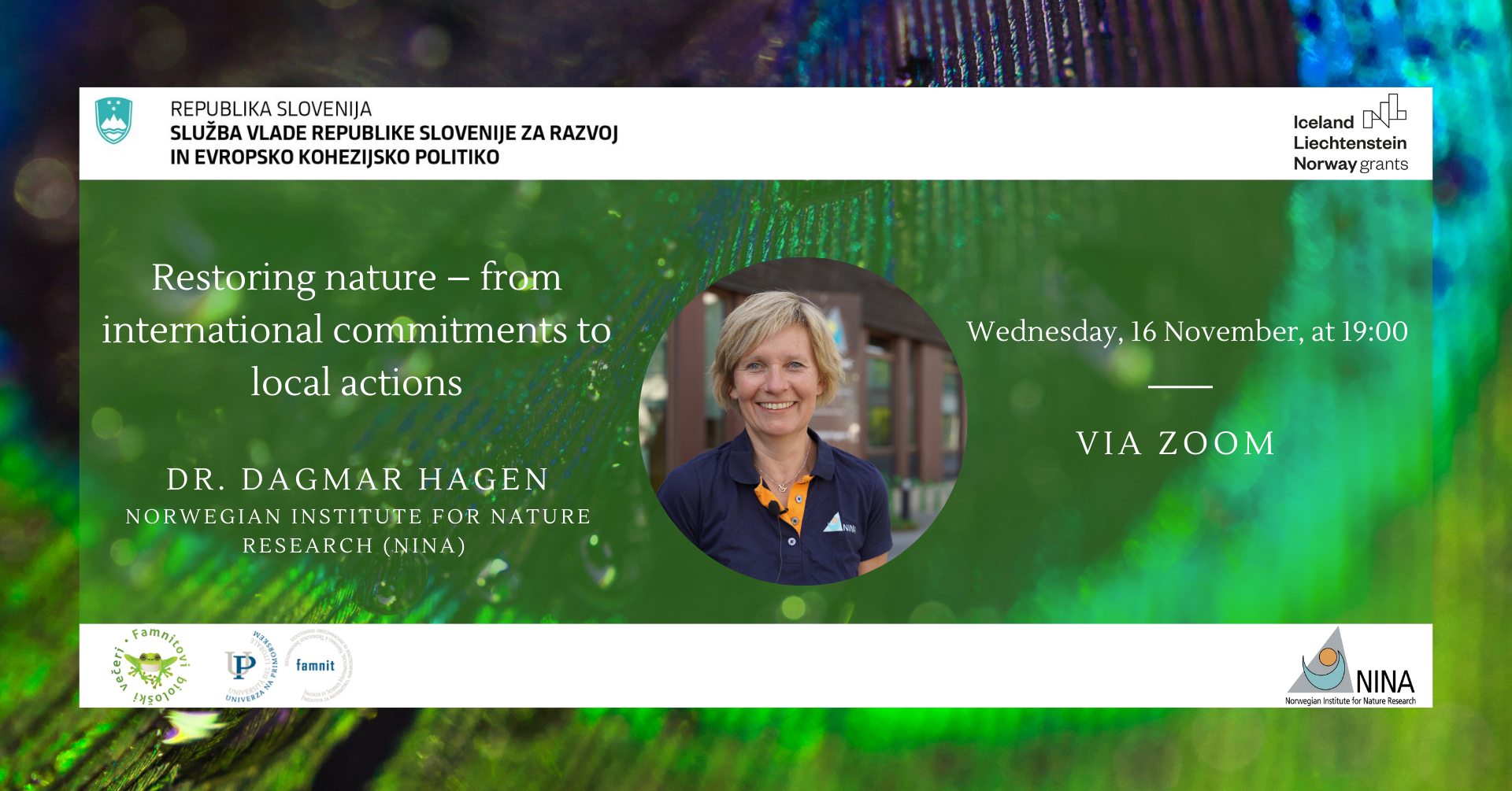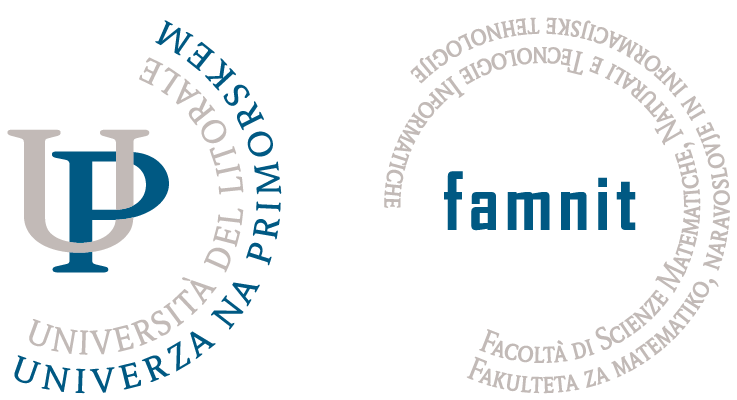You are invited to the First Famnits‘ Biological Evening,
“Restoring nature – from international commitments to local actions”
on Wednesday, 16 November, at 19:00,
via ZOOM
The lecture will be given by Dr. Dagmar Hagen (Norwegian Institute for Nature Research – NINA).

The presentation will begin with the lecturer giving a broad perspective on the need for restoration, and how ecosystem restoration has entered the international arena of policy, science and economy during the last years. She will describe and illustrate how to connect the global restoration targets with local planning, and how the solutions must be found on local scale. By using examples from restoration and mitigation projects in different nature types, the lecturer will demonstrate how the input from ecosystem restoration can contribute to reduce the loss of nature and to the recovery of degraded land. The lecture will demontsrate how the involvement of stakeholders, cooperation with local contractors, and integration of scientific and tacit knowledge produce measurable outcome for ecology, society and economy.
ABOUT LECTURER:
Dr. Dagmar Hagen works as senior scientific researcher at the Norwegian Institute for Nature Research (NINA). She has a PhD in restoration ecology focusing on management and restoration of disturbed and degraded areas. Dagmar has more than 20 years of experience with restoration research and restoration interventions, with focus on the interface between social and natural sciences, and between science and on-the ground restoration. She is lead ecologist in the current two largest restoration projects in Norway. Dagmar Hagen is involved in the project ReNature, a EEC Norwegian Grant cooperation between Norway/NINA and Slovenia. NINA is the lead institution for applied restoration ecology in Norway, and currently run projects in a range of nature types and in cooperation with diverse groups of stakeholders and profession. Read more about restoration in NINA at Restoration Ecology (nina.no).

